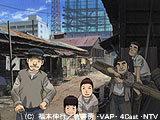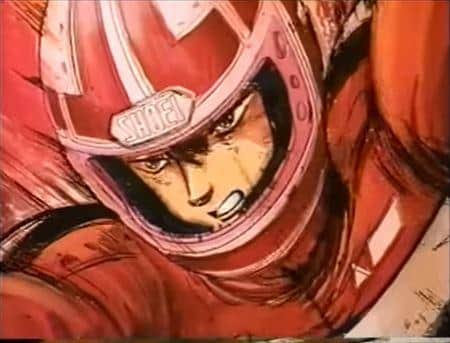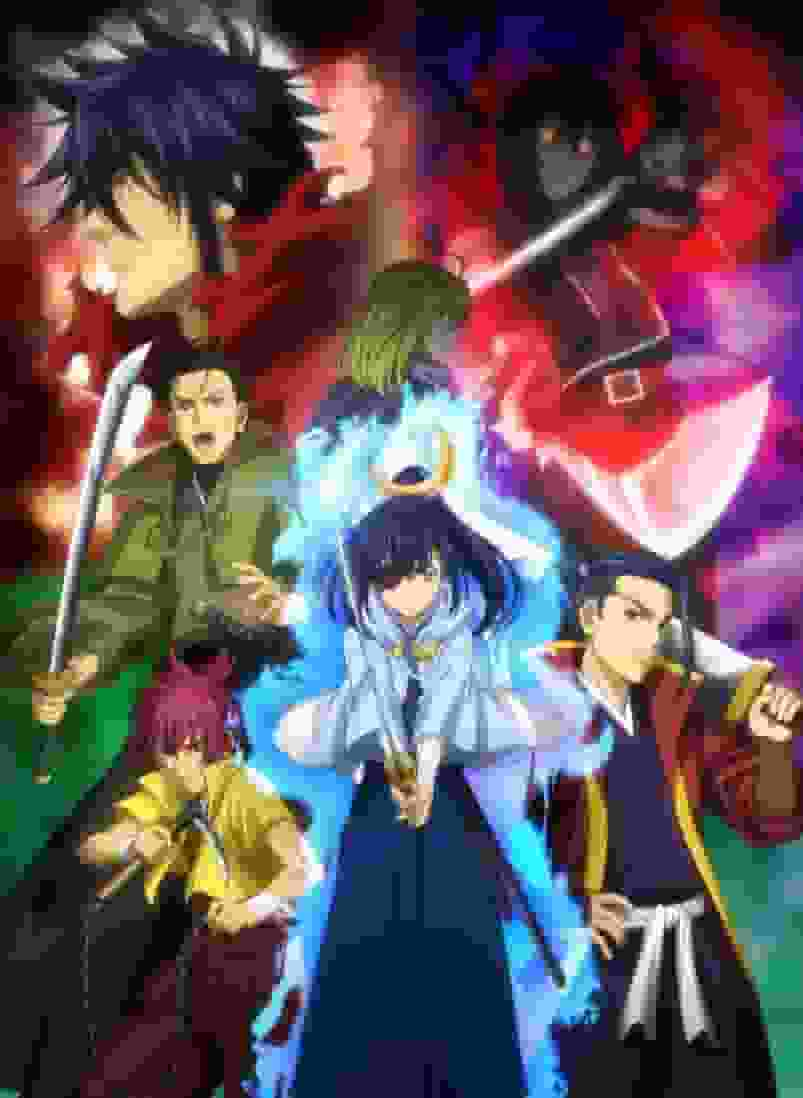The appeal and evaluation of Akagi, the mahjong legend: A genius descended into the world of darkness

Akagi: The Genius Who Descended into Darkness - Review and Recommendation■Overview of the workAkagi: The Genius Who Descended into Darkness is a TV anime series based on the mahjong manga of the same name by Fukumoto Nobuyuki. The 26-episode series aired on Nippon TV from October 4, 2005 to March 28, 2006, and depicts the human drama and tense world of competition through the game of mahjong. Animation was handled by Madhouse, with director Sato Yuzo and character design by Umehara Takahiro. The main character, Akagi, is voiced by actor Hagiwara Masato, who is also known to be a mahjong fan. ■ StoryIn 1958, a young boy appears before mahjong player Nangou, who is about to lose a life-or-death match. The boy is an amateur who claims to know nothing about mahjong, but Nangou asks him to play in his place. That boy is none other than Akagi Shigeru (Akagi), a legendary mahjong player who would later reign over the underground mahjong world. Akagi has an extraordinary imagination, as he must survive a life-or-death test of courage known as Chicken Run, and this imagination is no exception in mahjong. With his hot, magma-like passion hidden behind his cool demeanor, and the aura only someone who has overcome the brink of death possesses, he defeats strong opponents one after another. ■ Characters・Akagi Shigeru (Akagi) : A "genius who descended into the darkness" with mahjong skills strong enough to beat a "professional pinch-player" despite only being a 13-year-old amateur. He has "ideas beyond the ordinary" that allow him to survive a life-risking test of courage called Chicken Run. This idea is also fully displayed in mahjong. At first glance, he acts coolly and seems to have no meaning in life, but in fact he has hot magma inside him that is hot enough to burst forth. ■ Production staff・Original story : Nobuyuki Fukumoto (Modern Mahjong Comics, Takeshobo) ■Broadcast information・Broadcast period : October 4, 2005 to March 28, 2006 ・Broadcast station : Nippon Television ・Broadcast time : Every Tuesday from 24:50 to 25:20 ■ Theme songs and music・OP1 ■ Episode List・Episode 1: A Genius Descends into the Darkness (2005/10/04) ■ Review"Mahjong Legend Akagi: The Genius Who Descended Into Darkness" is a work that depicts the human drama and the tense world of competition through the game of mahjong. The original story and character portrayals by Fukumoto Nobuyuki are faithfully reproduced in the anime. In particular, the main character Akagi, with his hot magma-like passion hidden behind his cool deeds and the aura only those who have overcome the brink of death possess, defeats strong opponents one after another. His appearance leaves a strong impression on viewers. Madhouse, the animation studio, has succeeded in drawing viewers in by depicting the mahjong scenes realistically. Director Yuzo Sato has maximized the appeal of the work by incorporating expressions unique to anime without compromising the atmosphere of the original. Additionally, character designer Takahiro Umehara has enhanced the visual appeal by creating designs that highlight the individuality of each character. The voice actors are also impressive, especially Masato Hagiwara, who plays Akagi. He is also known to be a mahjong fan, and his voice is a perfect fit for the character, further deepening the worldview of the work. Other talented voice actors such as Rikiya Koyama, Tesshō Genda, Koji Nakata, Wataru Takagi, Hideyuki Tanaka, Morio Kazama, and Toru Furuya have also gathered together to bring out the charm of each character. The music is also an important element in enhancing the atmosphere of the work, and the background music by Hideki Taniuchi further enhances the tense mahjong scenes. The theme songs also match the worldview of the work, and the opening theme "Nantoka Nare" (Furuido), the ending theme "Akagi" (Maximum the Hormone) and "STS" (Animals) are songs that leave a strong impression on viewers. ■Recommendation"Mahjong Legend Akagi: The Genius Who Descended Into Darkness" is a work that depicts the human drama and the tense world of competition through the game of mahjong. The original story and character portrayals by Fukumoto Nobuyuki are faithfully reproduced in the anime. In particular, the main character Akagi, with his hot magma-like passion hidden behind his cool deeds and the aura only those who have overcome the brink of death possess, defeats strong opponents one after another. His appearance leaves a strong impression on viewers. Madhouse, the animation studio, has succeeded in drawing viewers in by depicting the mahjong scenes realistically. Director Yuzo Sato has maximized the appeal of the work by incorporating expressions unique to anime without compromising the atmosphere of the original. Additionally, character designer Takahiro Umehara has enhanced the visual appeal by creating designs that highlight the individuality of each character. The voice actors are also impressive, especially Masato Hagiwara, who plays Akagi. He is also known to be a mahjong fan, and his voice is a perfect fit for the character, further deepening the worldview of the work. Other talented voice actors such as Rikiya Koyama, Tesshō Genda, Koji Nakata, Wataru Takagi, Hideyuki Tanaka, Morio Kazama, and Toru Furuya have also gathered together to bring out the charm of each character. The music is also an important element in enhancing the atmosphere of the work, and the background music by Hideki Taniuchi further enhances the tense mahjong scenes. The theme songs also match the worldview of the work, and the opening theme "Nantoka Nare" (Furuido), the ending theme "Akagi" (Maximum the Hormone) and "STS" (Animals) are songs that leave a strong impression on viewers. Related information・Original work : Nobuyuki Fukumoto's "Touhai Densetsu Akagi: Genius Descended into Darkness" is published by Kindai Mahjong Comics (Takeshobo). It is completed in 36 volumes and is recommended not only for mahjong fans but also for those who want to enjoy human drama. ■ Summary"Mahjong Legend Akagi: The Genius Who Descended Into Darkness" is a work that depicts the human drama and the tense world of competition through the game of mahjong. The original story and character portrayals by Fukumoto Nobuyuki are faithfully reproduced in the anime. In particular, the main character Akagi, with his hot magma-like passion hidden behind his cool deeds and the aura only those who have overcome the brink of death possess, defeats strong opponents one after another. His appearance leaves a strong impression on viewers. Madhouse, the animation studio, has succeeded in drawing viewers in by depicting the mahjong scenes realistically. Director Yuzo Sato has maximized the appeal of the work by incorporating expressions unique to anime without compromising the atmosphere of the original. Additionally, character designer Takahiro Umehara has enhanced the visual appeal by creating designs that highlight the individuality of each character. The voice actors are also impressive, especially Masato Hagiwara, who plays Akagi. He is also known to be a mahjong fan, and his voice is a perfect fit for the character, further deepening the worldview of the work. Other talented voice actors such as Rikiya Koyama, Tesshō Genda, Koji Nakata, Wataru Takagi, Hideyuki Tanaka, Morio Kazama, and Toru Furuya have also gathered together to bring out the charm of each character. The music is also an important element in enhancing the atmosphere of the work, and the background music by Hideki Taniuchi further enhances the tense mahjong scenes. The theme songs also match the worldview of the work, and the opening theme "Nantoka Nare" (Furuido), the ending theme "Akagi" (Maximum the Hormone) and "STS" (Animals) are songs that leave a strong impression on viewers. "Akagi: The Genius Who Descended Into Darkness" is a recommended work not only for mahjong fans, but also for those who want to enjoy human drama. Please give it a watch. |
<<: Mysterious Exploration with Kirara - A thorough review of the fascinating adventure
Recommend
Manga artist Daichi Manjo has cancer and created the series "Mobile Suit Gundam Aggressor"
Japanese cartoonist Daichi Manjo, who created the...
"Efficus: This Feeling for You..." Review: A moving story and charming characters
The appeal and evaluation of "Efficas: I giv...
The actor who played young Gamora in "Avengers 3" will star in the movie "Borderlands"
According to the latest news released by Gearbox,...
The next live-action Transformers movie will be linked to G.I. Joe and focus more on the robot perspective
Foreign media Collider exclusively reported some ...
"Doraemon: Stand by Me 2" new trailer: Nobita travels through time and space to find his wife
The 3DCG version of the animated film "Dorae...
The appeal and reviews of "Beautiful Mask": A must-see anime world
Detailed review and recommendation of Beautiful M...
"Date A Live" themed new high-end figurine, blue rabbit ears outfit, Yoshino is gorgeous and lovely
A new high-end figure of Himegawa Yoshino, the bl...
"Mrs. Spider" has a bad reputation! IGN 5 points MTC 29 points
The media reviews of Mrs. Spider were lifted, and...
Childhood memories "The Adventures of Tintin" 90th anniversary release of Taiwan edition collection commemorative collection
Published in more than 70 languages worldwide, ...
"Shin Koihime Musou" review: Was the fusion of history and moe successful?
"Shin Koihime Musou": A battle between ...
threezero "Mobile Ultraman" Tiga Ultraman 1/6 scale action figure priced at 955 yuan
Recently, the famous model manufacturer threezero...
GSC's super cute "Venom" clay figurine is priced at 547 yuan and comes with a comic background plate
Recently, the famous model manufacturer Goodsmile...
The appeal and evaluation of Mr. Poppo and the Easygoing Engineer: A new perspective on railway animation
Mr. Poppo and the Easygoing Engineer - Looking ba...
"BROTHERS CONFLICT" review: An anime about complicated sibling relationships and romantic conflicts
The appeal and reviews of "BROTHERS CONFLICT...
The new version of "The Texas Chainsaw Massacre" starts the horror nightmare and returns to the screen
As a masterpiece in horror movies, "The Texa...









